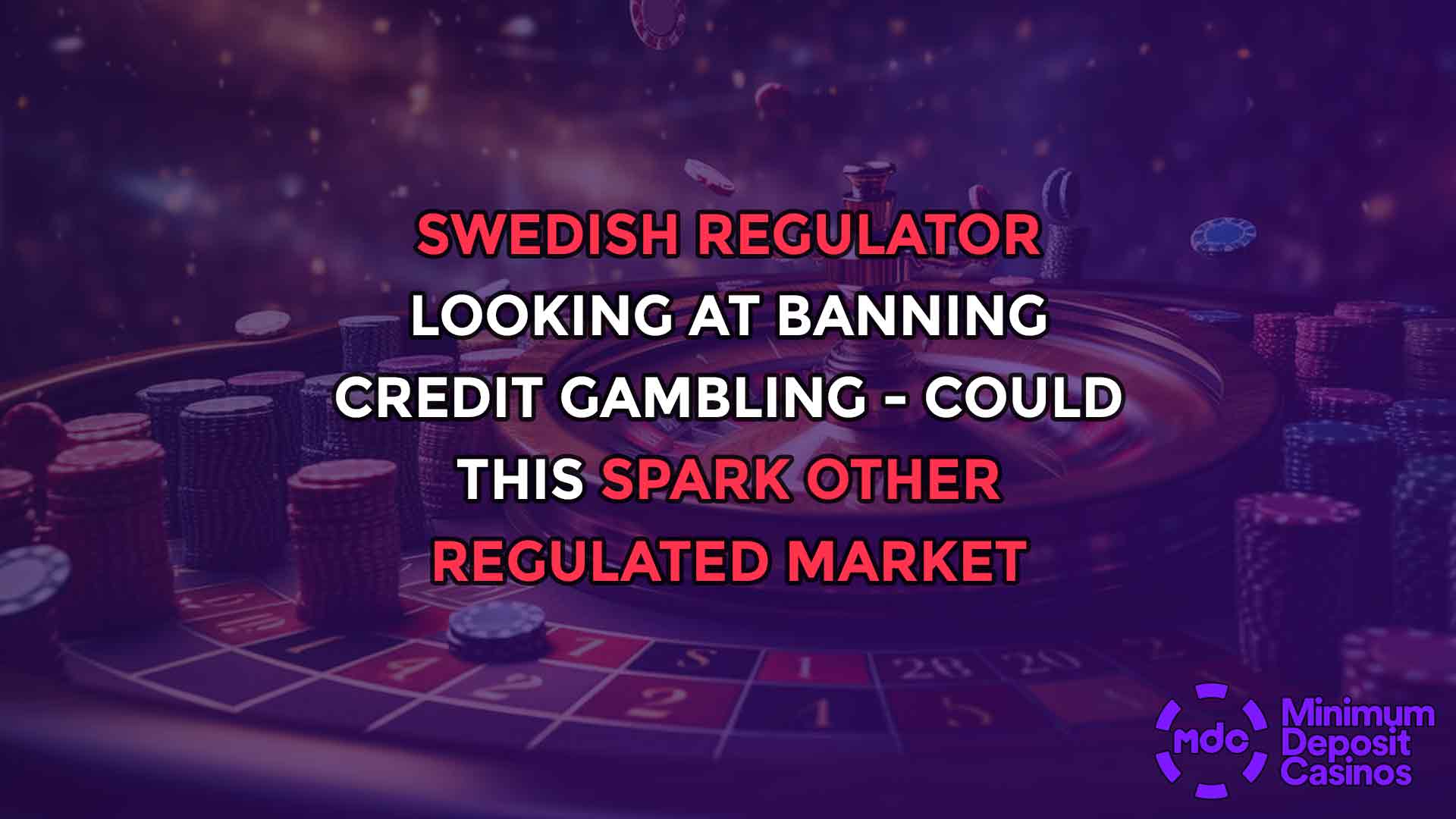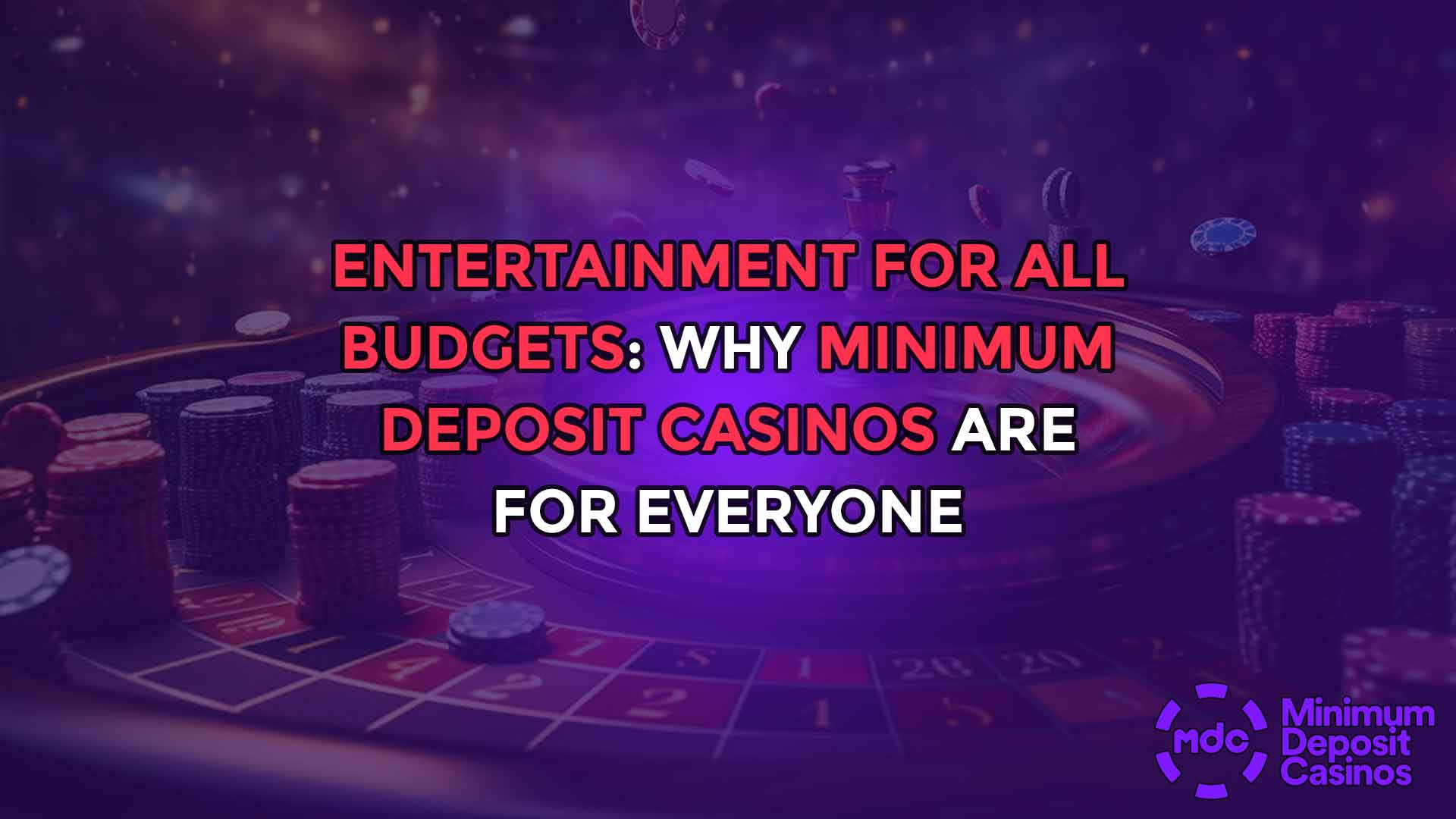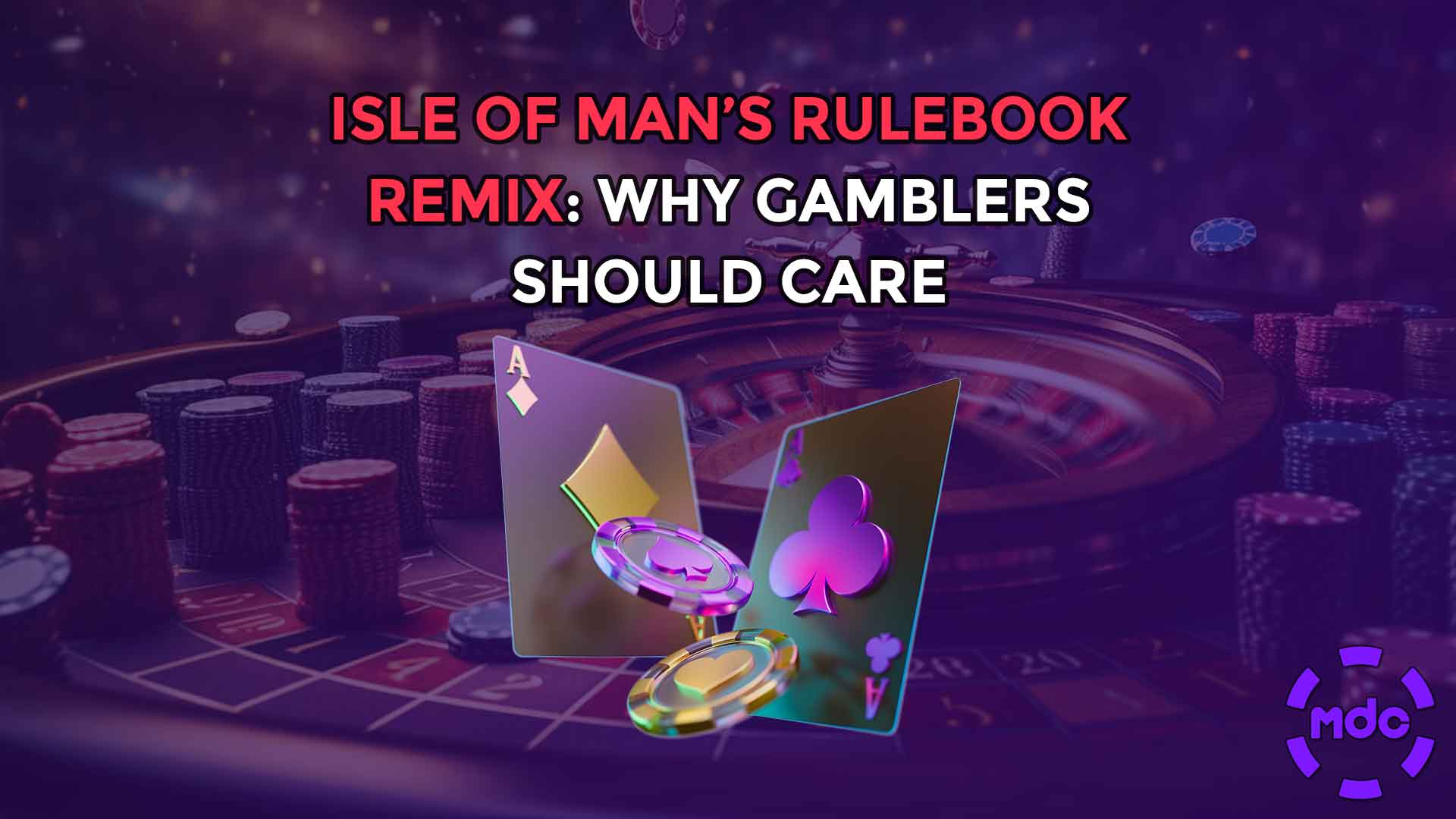Swedish regulator looking at banning credit gambling – could this spark other regulated market
Sweden has long been the poster child of regulated gambling, with its no-nonsense watchdog Spelinspektionen keeping a laser focus on fair play, responsible gambling, and consumer protection. But now, it’s upping the ante, setting their sights on credit gambling. And the implications could ripple far beyond the Nordic borders.
So, what exactly is credit gambling? It’s when players place bets or make deposits at real-money online casinos using borrowed funds: think credit cards, loans, or buy now, pay later schemes. Sounds risky, and that’s because it is. Gambling with money you don’t have can spiral fast, fueling debt and addiction.
In a bold move to curb this, the Swedish government has proposed a sweeping ban on all forms of credit-based gambling, set to come into effect on April 1, 2026, according to CMS Law-Now.
The rules would prohibit licensed operators from financing gambling through credit in any form. That means no linking up with credit providers, and no third-party lending. Even credit card payments would be off-limits.
The goal? A safer, more sustainable gambling ecosystem – one that doesn’t leave players drowning in debt.
But here’s the million-kronor question: Could this set off a chain reaction in other regulated markets? Sweden’s always been a trendsetter in the gambling space, and if this credit crackdown proves successful, it’s easy to imagine countries like the UK, Canada, or New Zealand taking notes.
Why Is Sweden Considering a Credit Gambling Ban?
Sweden’s gambling scene has been on a regulatory trajectory, with the 2018 Gambling Act laying down strong consumer protections – and now a wave of recent political and legislative moves is taking things even further.
In February and March 2024, the Ministry of Finance proposed tightening the rules to prohibit all credit-financed gambling, citing the need to eliminate loopholes in existing law. Under the new proposal, licensed operators will no longer be allowed to accept bets funded by any form of credit (credit cards, loans, mobile invoices, overdrafts).
This initiative is rooted in mounting concerns over problem gambling and consumer protection. Sweden has seen sharp spikes in gambling-related debt and addiction, especially among the under-25 demographic. A recent ATG report shows unlicensed gambling siphoning off SEK 150 billion annually, raising serious alarms about financial ruin and illicit gambling pathways.
How Does Credit Gambling Work in Practice?
At its core, credit gambling means placing bets with money you don’t actually have. Instead of using cold, hard cash (or at least funds sitting in your bank account), you gamble using borrowed money – whether that’s a credit card, a quick loan, or even a buy now, pay later service like Klarna.
In Sweden, credit gambling typically crops up in online casinos, where players can top up their balances using credit cards or link accounts to e-wallets funded through overdrafts or loans. And while current Swedish laws already partially ban direct credit use, operators have found workarounds, like redirecting players to third-party credit providers.
The proposed 2026 law aims to shut that down for good, covering not just obvious methods but also affiliate links to credit agencies or “deferred payment” casino top-ups.
Looking abroad, the UK once allowed credit card gambling until a bombshell ban hit in 2020, following reports that 22% of online gamblers using credit cards were problem gamblers. The UK Gambling Commission made the move to stop the spiral. Over in Australia, the government is also lining up a ban on credit card gambling for online platforms, adding heat to what’s becoming a global trend of pulling the plug on this plastic card.
So why all the drama? Because gambling with borrowed money is a slippery slope. It ramps up the risk of chasing losses, blurs the line between disposable income and debt, and fuels over-indebtedness. When you’re gambling with credit, you’re not just risking your bankroll – you’re risking next month’s rent, your car payment, your mental health.
The Impact of Credit Gambling Bans in Other Countries
If Sweden goes all-in on a credit gambling ban, it won’t be gambling in the dark. Several countries have already rolled the dice on this, and the results are illuminating. From the UK to Australia, bans on credit-based betting have reshaped player habits, rattled a few cages in the industry, and sparked a payment-method evolution.
Let’s start with the UK. As mentioned above, it banned gambling with credit cards in 2020. The move came after nearly a quarter of credit card gamblers were classified as problem gamblers. And it worked. Post-ban reports showed a noticeable dip in high-risk gambling behaviour, with fewer people chasing losses into financial free fall. Consumer groups cheered, and regulators finally felt like they’d pulled a lever that made a real difference.
Australia is now following suit, with legislation in the works to ban credit card use for online gambling. The Aussie government’s taking no chances – they’re even looking at blocking digital wallets and crypto-funded bets if they’re tied to credit.
But what about the industry? Did the sky fall? Not quite. Operators grumbled, sure, but then adapted. In the UK, the market responded with a pivot toward alternative payment methods like bank transfers, debit cards, and instant payment platforms (think Open Banking). Some even introduced deposit limits, real-time affordability checks, and budgeting tools to stay on regulators’ good side and keep players coming back with a clearer conscience.
And as for revenue? While some operators saw an initial dip, the long-term impact wasn’t catastrophic. In fact, for many, revenue stabilised – because when players aren’t crushed under mountains of debt, they’re more likely to stick around. It’s the difference between a short-term sugar high and a sustainable customer base.
So what’s the takeaway? Banning credit gambling might feel like a bold bet, but in markets that have done it, the payoff has been healthier players, more responsible gaming ecosystems, and an industry that’s learning to thrive without leaning on debt-driven profit. If Sweden joins the club, it won’t be blazing a trail – it’ll be following a growing movement that’s betting on sustainability over short-term gains.
Could Sweden’s Move Influence Other Regulated Markets?
When Sweden makes a move in the gambling space, the rest of the world tends to perk up and pay attention. As one of the most tightly regulated and consumer-focused gambling markets, Sweden has a reputation for setting standards – and this potential credit gambling ban might just be its boldest play yet. But could it spark a global shift? All signs point to yes.
First in line to watch closely? Sweden’s EU neighbours. Countries like Finland, Norway, and Denmark have already flirted with tighter affordability checks and consumer protections. A successful credit ban in Sweden could light a fire under regulators to harmonise safer gambling practices across the EU.
Canada and New Zealand are also worth keeping on the radar. Both markets have been ramping up their regulatory frameworks, with increased scrutiny on gambling-related harm and advertising ethics. If Sweden shows that banning credit doesn’t tank revenue and actually improves player safety, expect those governments to start “reviewing policy.”
And here’s the kicker: gambling regulation is contagious. Experts in gambling policy say these moves tend to ripple, especially when backed by solid data and public health wins. According to international watchdogs and policy analysts, countries are increasingly sharing research, strategies, and outcomes. What starts as a Swedish safeguard could evolve into an OECD-wide best practice – especially in a world where digital gambling knows no borders.
“One market’s action becomes another’s benchmark. And if it protects consumers without harming the market? It spreads fast.”
As Professor Sally Gainsbury, a prominent gambling researcher, put it.
Wrap up on banning credit gambling
To sum it up, Sweden’s proposed ban on credit gambling is more than just another tweak to local regulations – it’s a bold stand against debt-fuelled betting. With rising problem gambling rates, growing political momentum, and lessons learned from markets like the UK and Australia, Sweden is drawing a line in the sand: gamble with what you have, not what you borrow.
The potential ripple effect could reshape gambling policies across Europe and beyond. We’re looking at a future where cash-based, responsible gambling becomes the global norm, not the exception.
Whether you’re a regulator, operator, or just someone who likes the occasional flutter, this is a space worth watching. The cards are on the table, and the stakes are higher than ever.







